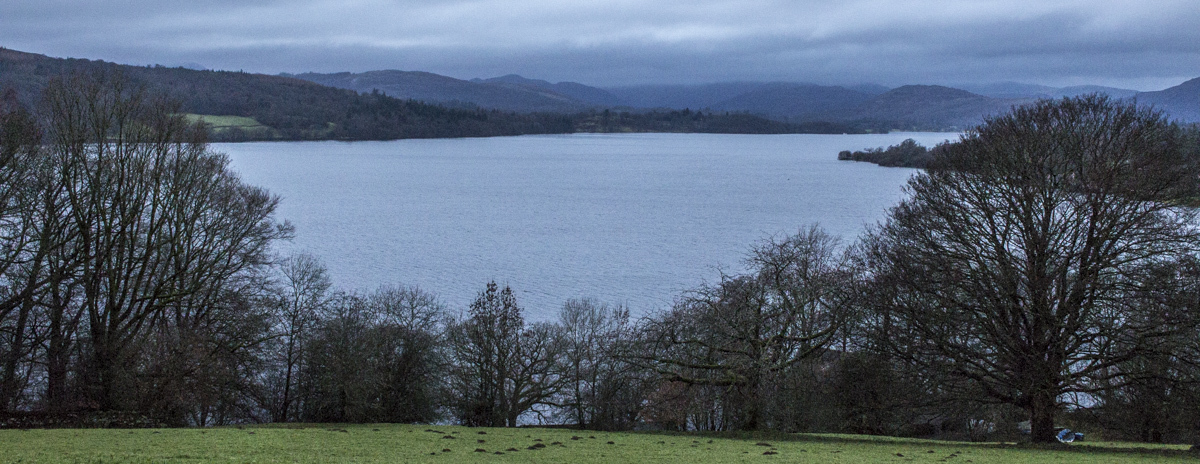
Since 1970 a third of the natural world has been destroyed by human activity. Almost two-thirds are degraded by human activity
This was one of many disturbing facts I discovered when, in December 2018, I was fortunate to be one of the delegates invited to attend the Cumbria Forum on sustainable tourism. This event was hosted by the excellent Cedar Manor Hotel in Windermere, close to Lake District in Cumbria. An appropriate venue as the hotel owner, Jonathon Kaye and his wife Caroline had recently won the Sustainable Hotel of the Year award. They are also holders of the Green Award Gold for achieving the highest standards of sustainability. This award recognises their use of the latest technologies, changes in working practices and procurement of sustainable fish/meat sources from local suppliers. We were introduced to the Green Tourism Awards by Andrea Nicholas, one of the speakers at the forum.
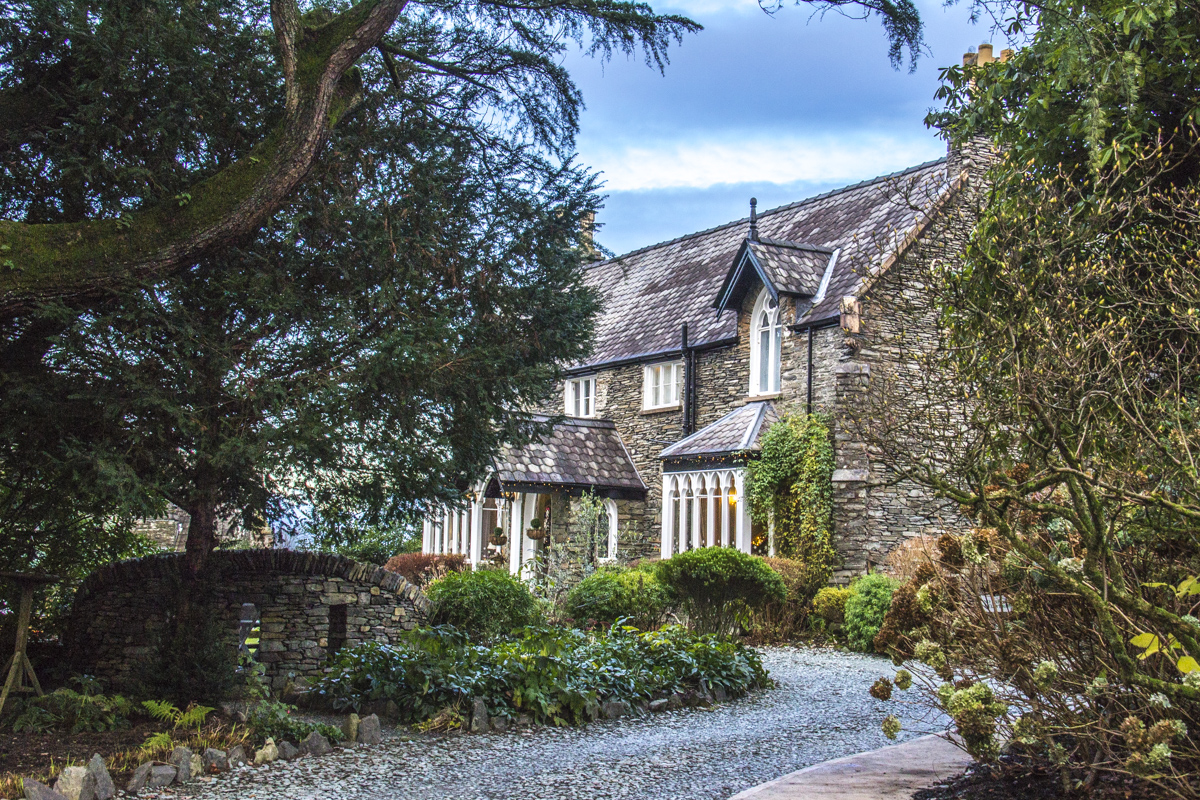
Cedar Manor Hotel in Windermere
My visit to the Lake District was also an opportunity to explore an area of exceptional beauty. As the Lake District National Park was designated a world heritage site by UNESCO in 2017 the expectation of a large increase in visitors has brought the issue of sustainability to the fore in this area. Sarah Swindley from the Lake District Foundation described how they are tacking the issue of sustainability in tourism. Through a programme of fund raising and support for relevant projects this foundation aims to make the Lake District an excellent example of sustainable tourism.
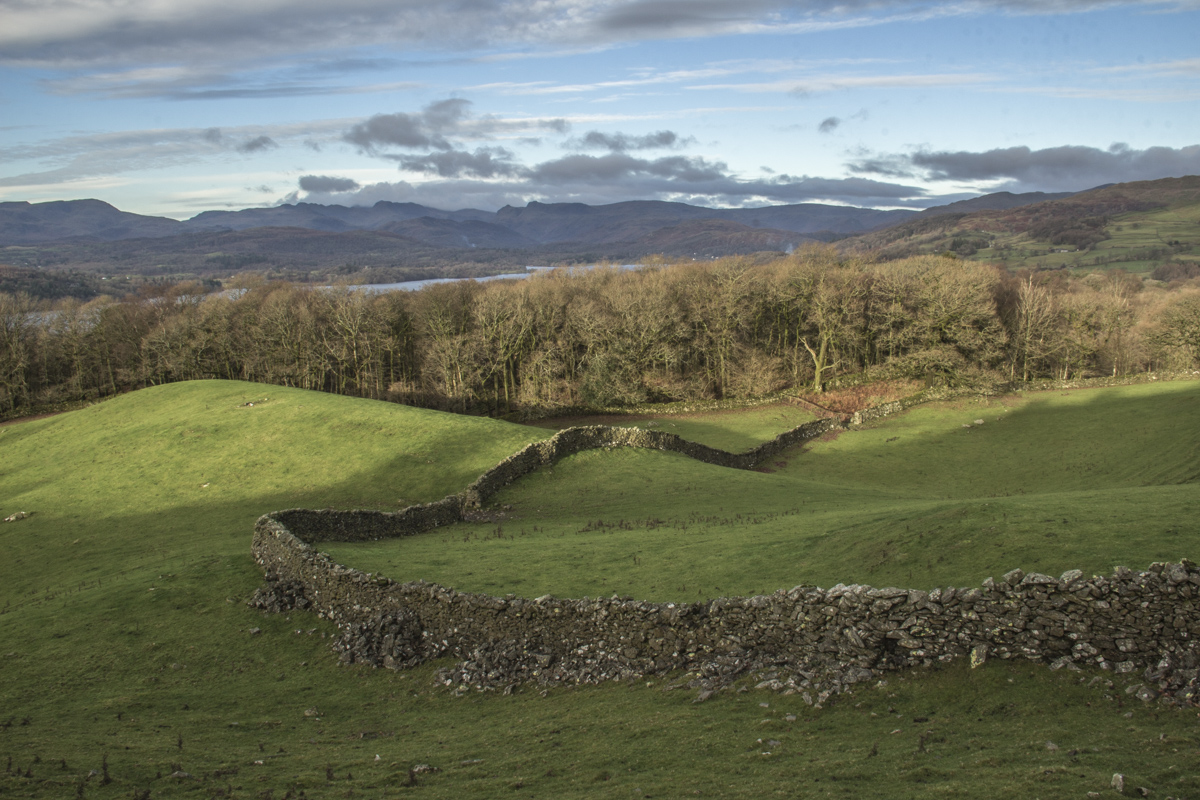
Countryside above Lake Windermere in Cumbria, UK
We were privileged to have two speakers who are passionate about the need to protect our biosphere and counter the effects of global warming. Both have devoted their time and talents to creating public awareness of these issues.
Ashley Cooper on Global Warming
Global warming is no longer a myth but a fact. Climate change is destroying environments and bringing hardship to both animals and humans. Ashley Cooper, a professional photographer, is passionate about the environment and has spent the past eleven years travelling the world taking photographs that demonstrate the impact of global warming. He gave us a fascinating talk about his experiences and illustrated his findings with his images. Glaciers are receding so quickly some of them have almost completely disappeared.
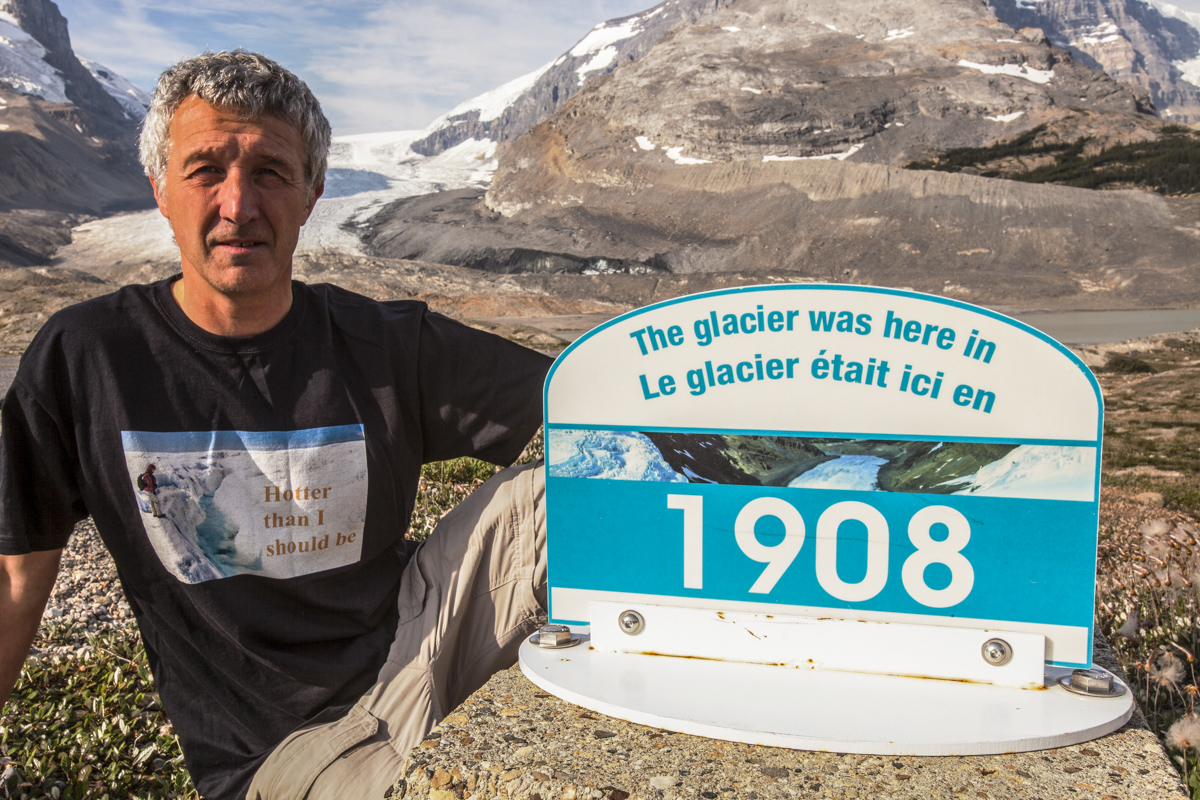
Ashley Cooper by a disappearing glacier Credit: Ashley Cooper
Whereas humans can find a way around situations created by global warming animals can’t. The brutal reality is that when their habitats are destroyed they suffer hardship and many die. This was dramatically portrayed by the alarming image of a polar bear – reduced to skin and bones. It is a terrifying statistic that a species of animal or plant life disappears at a rate of one every three minutes.
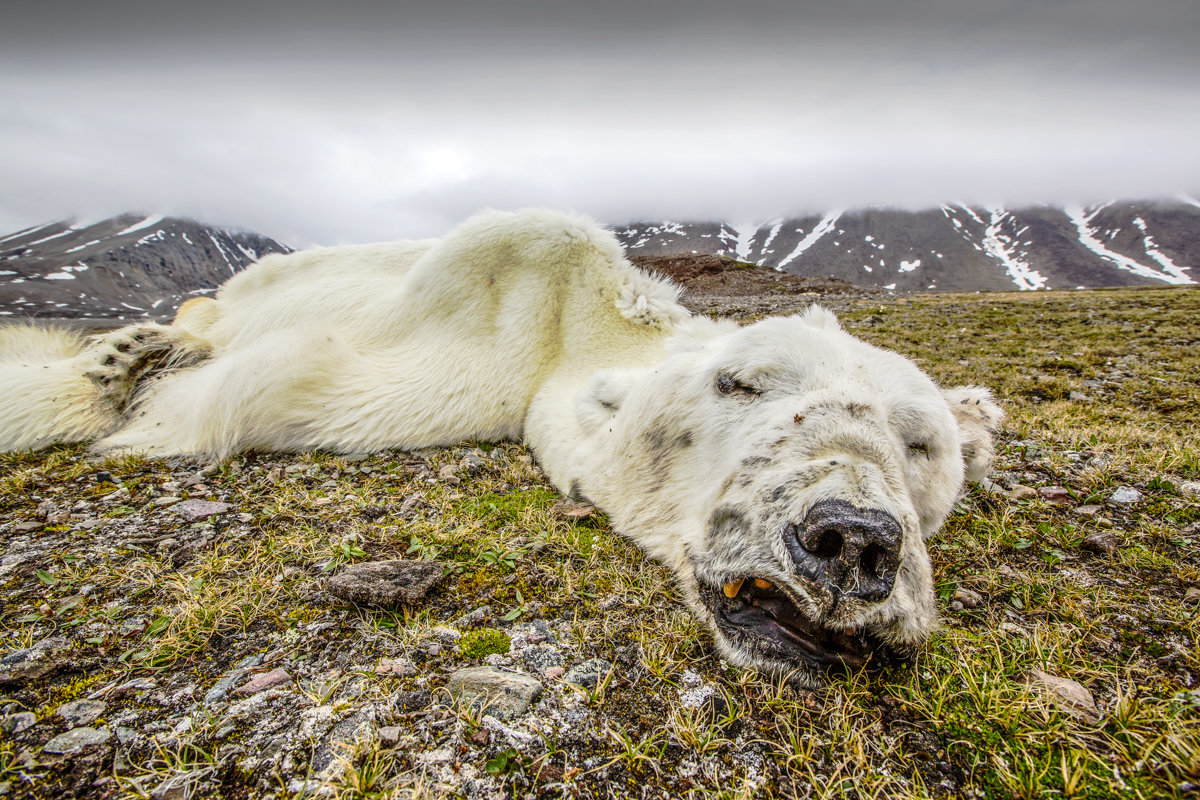
Polar Bear Reduced to Skin and Bones Credit Ashley Cooper
Kate Rawles and the Carbon Cycle
In 2017 Kate Rawles completed an incredible journey, the length of South America, on Woody a bicycle made from bamboo grown at the “Eden Project”: https://www.edenproject.com in Cornwall. Starting in Northern Colombia Kate travelled down the spine of the Andes Mountains crossing Colombia, Ecuador, Peru, Bolivia, Chile and Argentina to Ushuaia in Patagonia, at the tip of the continent. To make her own environmental footprint as light as possible Kate travelled to and from South America on a cargo ship.
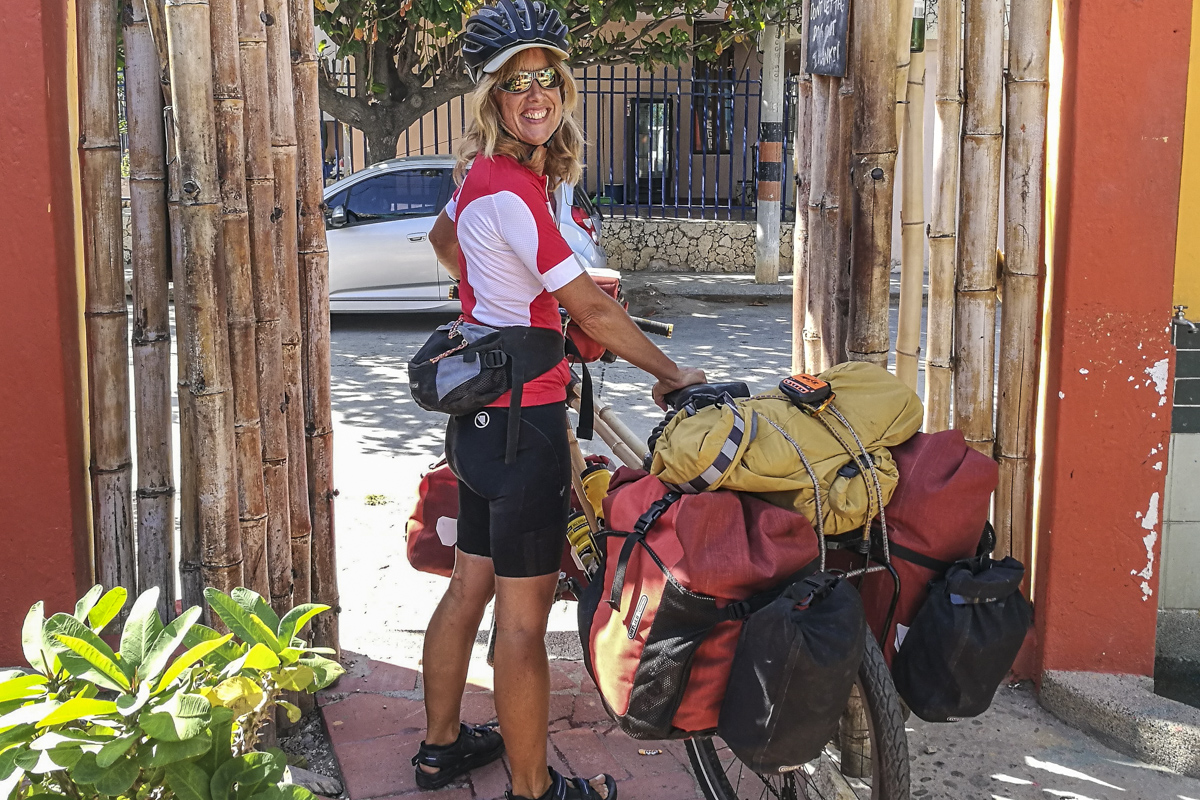
Kate Rawles in Rodadero Colombia with Woody, her bike Credit: Kate Rawles
The aim of this super-adventure was to highlight biodiversity loss, an issue as important as climate change but not so well advertised or comprehended. Put simply, biodiversity is the web of life – for every living thing on our planet including insects, animals and humans. They are all linked and inter-dependent. This precious resource is being whittled away by human intervention. In particular deforestation and extractivism – the extraction of minerals and fossil-based fuels from the Earth for commercial reasons. During her epic bike ride Kate visited a wide range of biodiversity and nature conservation-related projects. These included a school with a curriculum based entirely on turtles to a project aiming to conserve the cotton top tamarin, a species of monkey.
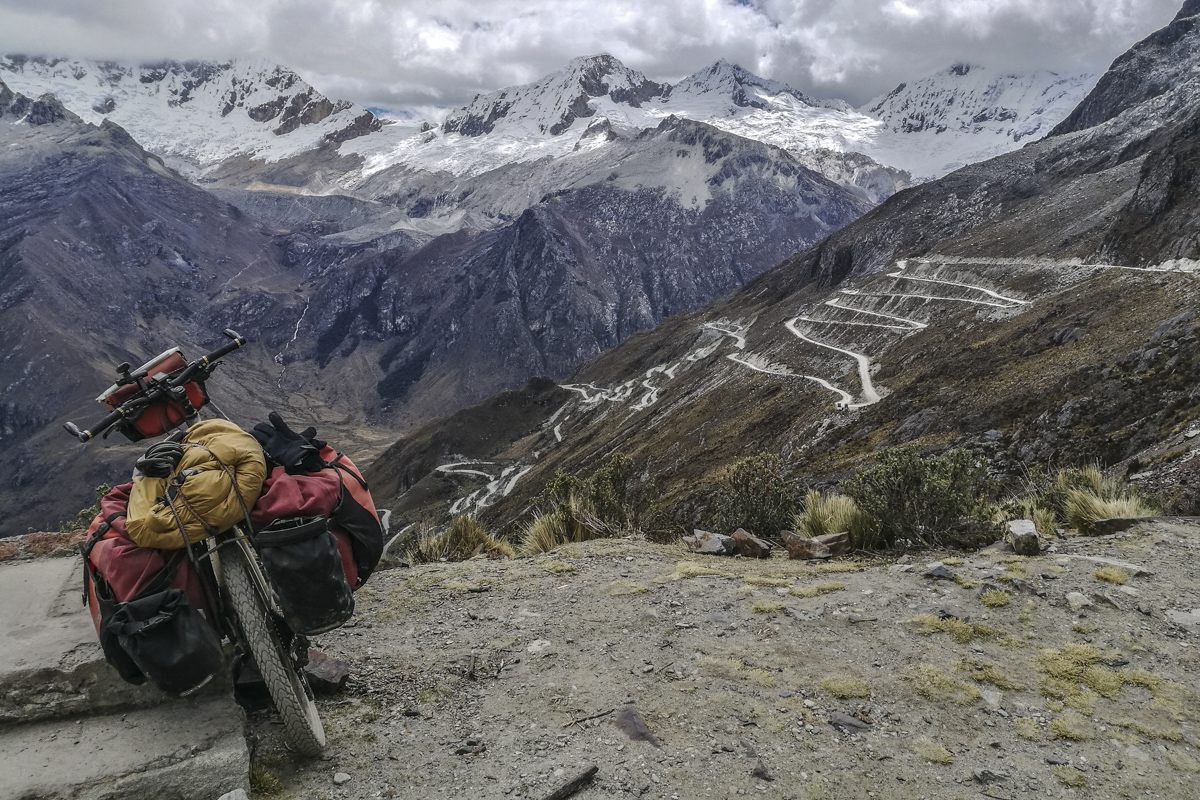
Woody in Cordillera Blanca Peru
Is there a Solution?
Ideally we should all stop travelling in planes, boats and cars but the thirst for travel is unquenchable. We should be looking for alternatives and ways in which to reduce our own carbon footprint. One alternative to luxury hotels and their excessive use of water would be agro-tourism. There are many different definitions of agro-tourism but simply put it is a farm-based holiday combined with the consumption of local products that may include involvement/education regarding the agricultural process. It is a lovely way to experience a country and lighten the carbon footprint. The Italian region of Abruzzo is very aware of the need for harmony between nature and people. While I was in this region I visited a vineyard, Cantina Rasicci, which adheres to the principles of organic production. The use of chemicals is forbidden and the amount of trace elements allowed is strictly defined. The branches pruned from the vines are composted and used to fertilise the land – nothing is wasted. This vineyard has five apartments available as holiday lets and offers a very alternative to accommodation in a town.
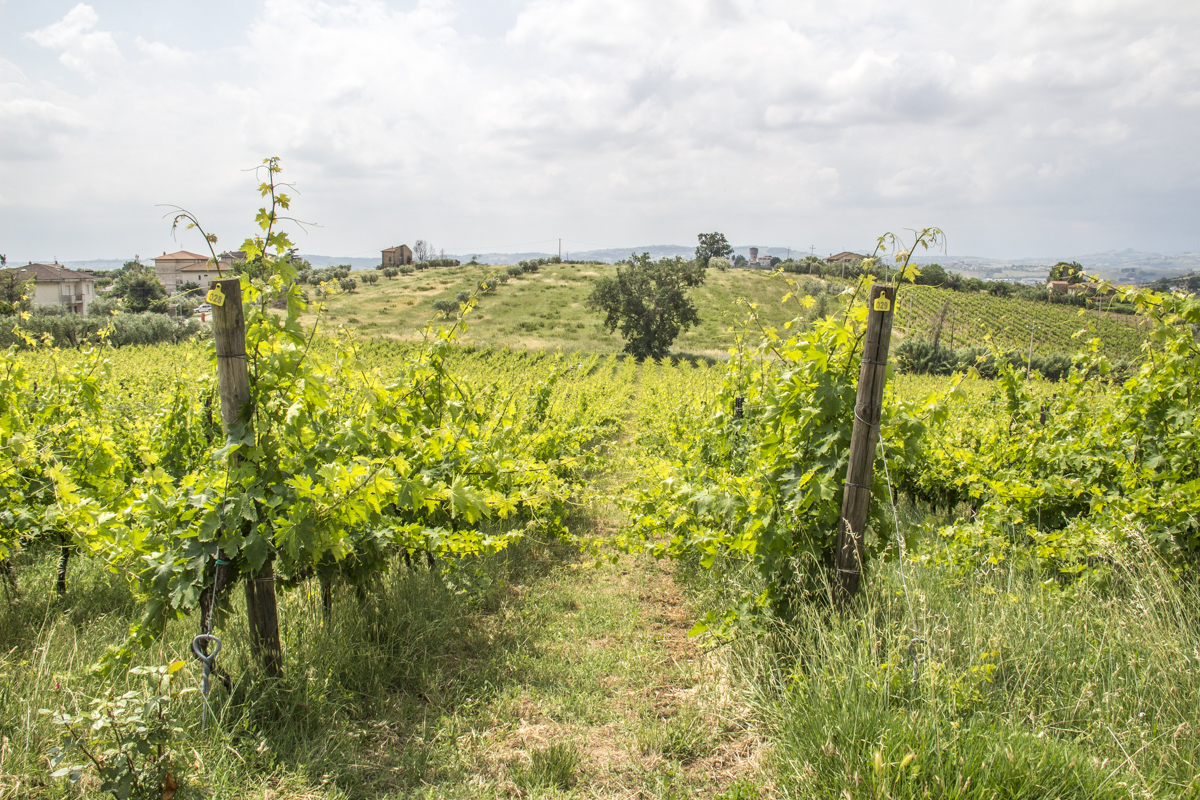
Cantina Rasicci, a Vineyard in Abruzzo, Italy
Time for Change
As Kate Rawles pointed out, we abuse the land because we see it as a commodity, our commodity and we take what we want from it. We should start working as a community to protect it before it is too late. It is the little things that make a difference. Do we really need a clean towel every day while staying in a hotel? It is necessary to use the car every time we go out? We may not think these small acts can make a difference, but they will.